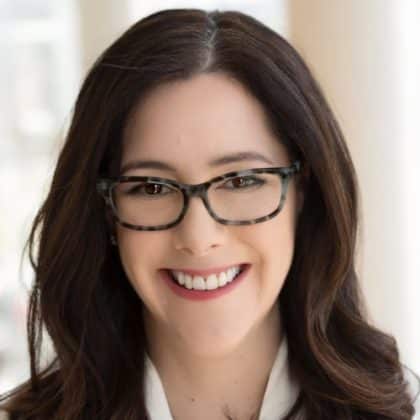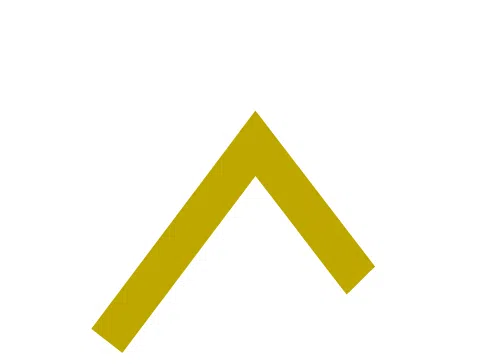Development Guild is proud to partner with Montefiore and Einstein, one of New York’s premier academic health systems and a recognized leader in providing exceptional quality and personalized, accountable care to approximately three million people across the Bronx, Westchester, and the Hudson Valley.
Victoria Jones sat down with Montefiore and Einstein’s Vice President and Chief Development Officer Rachelle Sanders to discuss how the hospital has been on the forefront of responding to the pandemic and what that means for their philanthropy, today and in the years to come.
Victoria: Wow! It looks like generosity out of crisis is an understatement for Montefiore and Einstein.
 Rachelle: It really is. In just a little over two months, we received over 1,500 gifts that totaled more than $13 million for COVID-19 relief. Over 50% of this support was from donors new to us. And, the generosity is not just in cash. We received millions of dollars of in-kind gifts, from vital software to beautiful loaned Audi’s to thousands of meals for frontline staff. Compassion also came in the form of hundreds of notes, phone calls, and stories about lives saved, people who grew up in our community decades ago, and significant New York philanthropists who had not yet seen Montefiore and Einstein as a philanthropic destination.
Rachelle: It really is. In just a little over two months, we received over 1,500 gifts that totaled more than $13 million for COVID-19 relief. Over 50% of this support was from donors new to us. And, the generosity is not just in cash. We received millions of dollars of in-kind gifts, from vital software to beautiful loaned Audi’s to thousands of meals for frontline staff. Compassion also came in the form of hundreds of notes, phone calls, and stories about lives saved, people who grew up in our community decades ago, and significant New York philanthropists who had not yet seen Montefiore and Einstein as a philanthropic destination.
Why are people so driven to support Montefiore and Einstein now?
Four big reasons.
First, I believe that COVID-19 has been a great equalizer. It’s a virus that knows no boundary. Everyone was affected. Everyone was scared. Once it hit, it no longer mattered that we were in the Bronx and outside of the “heart” of the city’s great philanthropy. It didn’t matter whether the patients were rich or poor. It didn’t matter which New York neighborhood a donor lived in. We were all in this together.
Second, the leadership of our President and Chief Executive, Philip O. Ozuah, MD, PhD, was nothing short of extraordinary. He led with calm, clear communication and leveraged data to act quickly and strategically to our emerging needs. He was steadfast, determined, and never missed a beat, so neither did we. While he focused first on our patients and faculty, he also showed the world the strength of Montefiore and Einstein by allowing the New York Times and CBS News into our Emergency Departments to capture the strength and bravery of our incredible nurses, doctors, and staff during the height of the pandemic. Together, these strategies instilled a groundswell of pride within our walls, across our campus, and beyond our borough like nothing I have ever experienced throughout my career. Everyone across the institution was singing our happy code, Alicia Key’s “Empire State of Mind,” and socially posted #montefioreproud and #einsteinstrong. And the taller they stood, the better job we did.
Sadly, the third reason is that our home in the Bronx was the hardest-hit community in the nation—ranking the highest across cases, hospitalizations, deaths, and socioeconomic turmoil—partly due to the density of our patient count, and largely caused by the high levels of poverty and underlying chronic health conditions affecting our patient population. Montefiore’s patient base—an estimated 87 percent of which reside in the Bronx, the nation’s poorest urban county—relies heavily on Medicare and Medicaid at a rate of approximately 85 percent. We anticipated that our community, comprised mainly of African-American and Hispanic individuals and families, would be disproportionately affected by COVID-19. And it was. The Bronx was the hotbed of the global pandemic.
Finally, our intellectual firepower at Albert Einstein College of Medicine became a national beacon of inspiration. We were already known worldwide for our scientific discoveries and expertise in infectious disease. Einstein researchers were among the first out of the gate with promising anti-viral trials such as Remdesivir and therapeutic trials using convalescent serums from recovered patients. We talked with donors—now more than ever we need science, and they joined with us. The combination of our extraordinary patient care and promising research was no longer the best kept secret in New York City. We became a true philanthropic destination, in New York and far beyond.
What were you and your team doing during all of this?
Early on, when New Rochelle became a containment zone, I knew we had to immediately fundraise for this. COVID-19 was right here, right now. At the leadership table we saw it coming. We knew that we were going to be taxed way beyond our capacity and finances. So, my team and I started dialing for dollars. We decided to put aside our standard practices of strategizing, educating, and cultivating to gently lead to an ask—we had to just ask and not apologize. People were depending on us and we felt that deeply.
Then it became a cascade. Our board members started reaching out to their friends and colleagues to solicit donations for Montefiore. Staff at every level started to help. The news coverage got people we had never heard of calling to donate. You probably saw Yoko Ono’s tweet about supporting her friend who was a nurse in our hospital. There were many of these stories. And we just kept expanding our circle. We called everyone we could think of and they called us back. Not one person we called was offended…not one. We were all in it together.
How will this change fundraising for Montefiore after COVID?
Well, I hope we see “after COVID” sometime soon; it is not going away tomorrow.
I can say this: I went places in our hospital that I didn’t even know existed. I didn’t anticipate that food insecurity would become a financial priority, and I didn’t know that we had a food pantry until our team coordinated hundreds of donated meals. We have worked more closely with our MarComm department than I ever before. We have a new appreciation for each other. I believe that so many in our institution now see philanthropy in a different light and that is going to change the way we collaborate and partner forever.
I suspect some of the changes in our fundraising program are changes that all shops are seeing. We quickly put virtual engagement into action so that we could get all of our donors – new and old – under the tent with us. Our weekly “In Conversation With…” series has had 300 people at a time tune in to hear how our faculty members are managing COVID-19, how we are on the forefront of drug development, and more. I hope we have inspired even a fraction of them to stick with us. And we have a new army to help us do it.
How has this changed you?
I hold a deep personal belief that crisis makes us strong. While I will never say that COVID-19 is a gift – it is anything but – it reminds me why I work at Montefiore Medicine and strengthens my faith in the inherent kindness of humanity. That may be odd to say when our country is in such strife. But these past few months have reminded me of the true importance of health, of family and friends, of nature and time outdoors, and of self-care and wellness. I do believe that I am already stronger after living and working in the epicenter of the height of the pandemic and that Montefiore Medicine is, too.


